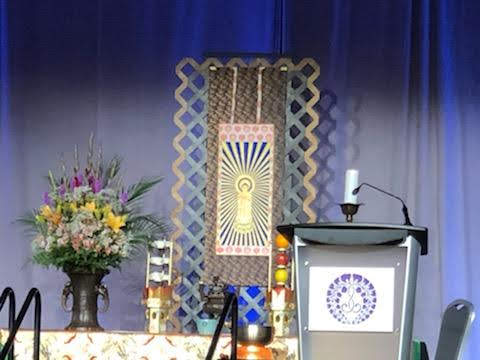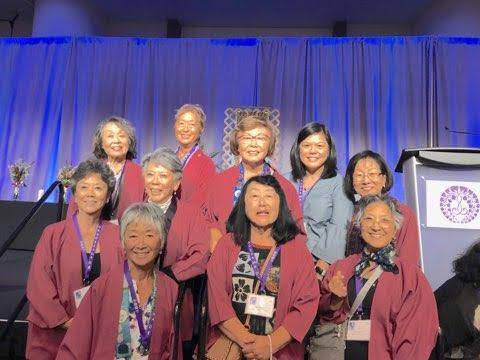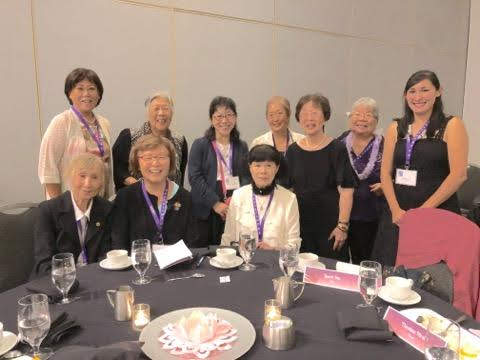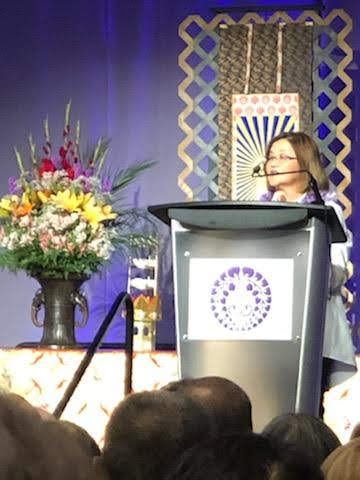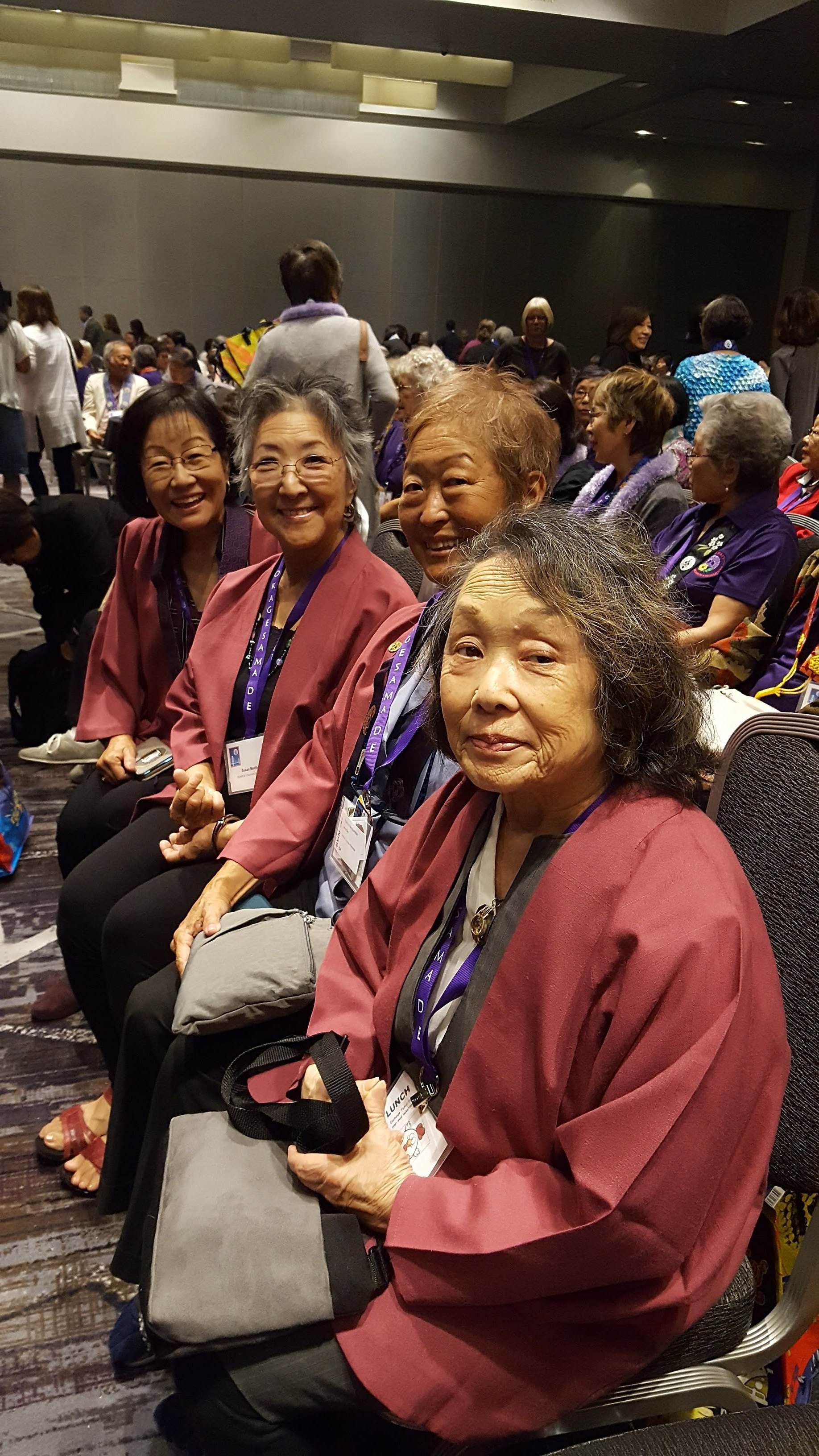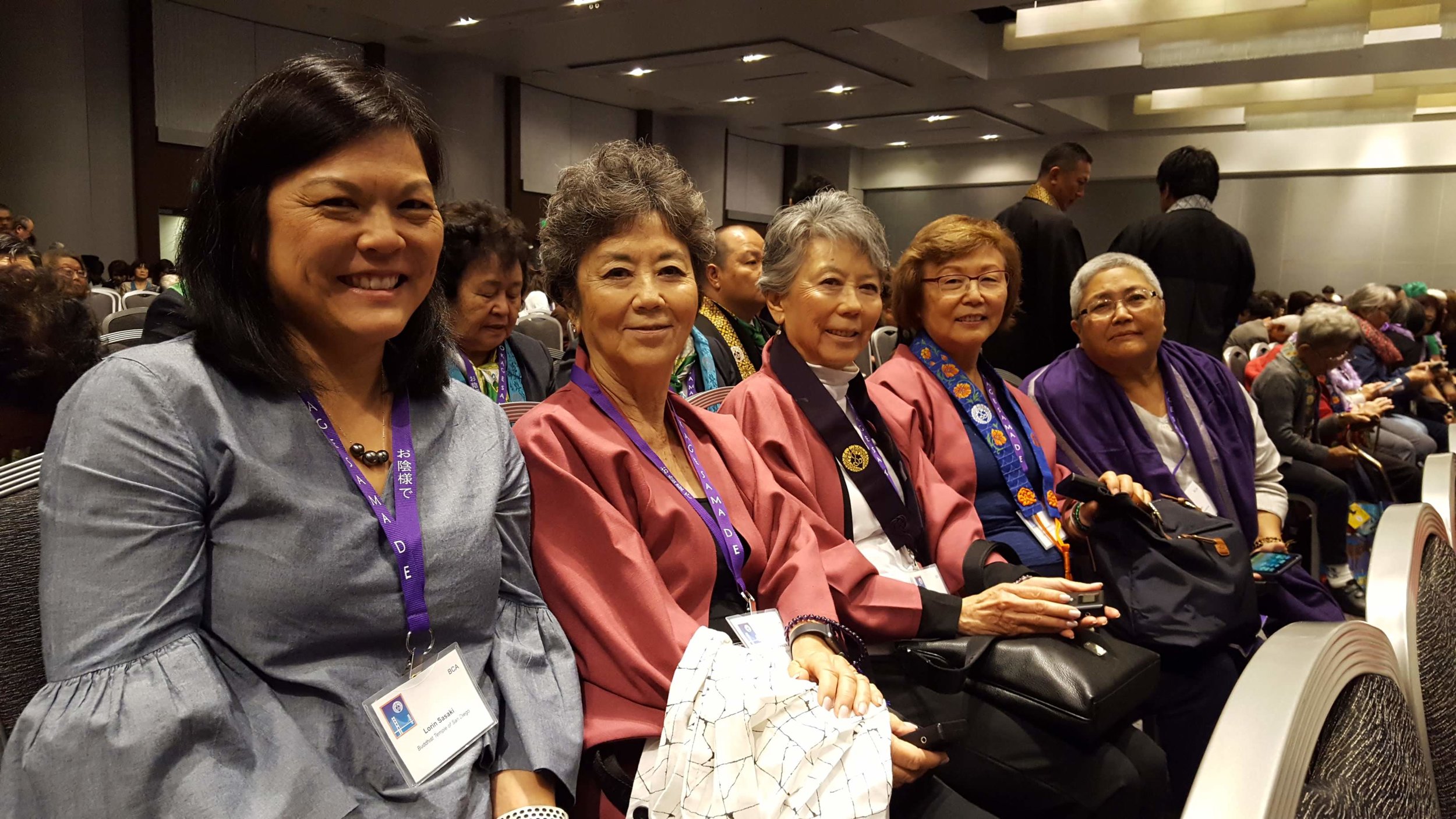16th World Buddhist Women's Convention: Live the Nembutsu
The 16th World Buddhist Women’s Convention was held at the Marriott Marquis Hotel in San Francisco during the labor day weekend. This three-day convention was attended by his eminence Gomonshu Ohtani Kojun the direct descendant of Saint Shinran and over 1700 Temple members, officials, ministers, and BWA members from around the world including Brazil, Japan, Canada, and Mexico. The theme, Live the Nembutsu, was expressed in the keynote speakers messages, the workshops, and the panel discussions. It was an inspirational weekend, reminding us all to endeavor to live with compassion, gratitude and mindfulness.
Workshops::
Mindfulness and Shin presented by Leo Joslin, Minister’s Assistant, Buddhist Church of San Francisco
As Shin Buddhists, Leo shows us how we can approach mindfulness through meditation. In this workshop, he guides us through several sessions of basic mindfulness meditation. He states that daily meditation helps us to reduces stress and to deal with our anger and negative emotions. We can be better able to cut the emotional reactivity of conflict with others through meditation. We can train our mind and open our hearts to the Nembutsu. We become fully present in the moment and can attain a feeling of peace and tranquility.
He states that research has shown that brain function is altered through daily meditation:
reduction of stress
better recovery in anger management
better interpersonal relationships
Intersecting Identities: Shin Buddhism and LGBTQ, presented by Rev. Elaine Donlin, Minister’s Assistant at the Buddhist Church of San Francisco:
Through her efforts to be supportive and sensitive in presenting a safe environment for us to be open in our discussion, Reverend Donlin explained her religious and LGBTQ experiences and her path to Shin Buddhism. She expressed how the teachings of Jodo Shinshu Buddhism were align with her efforts to be her authentic self and to be open with others about her life. Two other panelist expressed their perspectives of how challenging it was for them to be accepted about their sexuality and life style in our culture, and how Jodo Shinshu Buddhism provided for them a safe, inclusive environment. A discussion followed where efforts to deal with bullying and homophobic language were discussed, and what some of the Temples are doing to deal with these problems.
Panel Discussions: How I live the Nembutsu
Sumi Tanabe, San Jose Buddhist Church Betsuin
Generosity in Spirit
Sumi is retired after working over 40 years in the area of higher education in California. She was born in Long Beach and was raised in the town of Fowler, located in California’s central valley. When World War II broke out, she and her family were interned in Arkansas and Gila River, Arizona. She described to us all the hurtful experiences and indignities she and her family went through, from prejudice against her family at her birth before the war (nurse stating, “Oh, another Jap baby”), indignity of being housed in horse stalls at Santa Ana before being sent to the camps, chaos and confusion of being turned out of their homes, incarceration in camps, and loss of property as well as loss of health, confidence and trust of others.
The lesson she showed is that you need not be bitter and defeated by hate. Acceptance and gratitude made her a champion of others who face injustice now.
I’m not sure I could be so generous in spirit but she’s a model to look up to.
Laurine
Trudy Gahlinger, Calgary Buddhist Temple
Gratitude Journal
Trudy Gahlinger lives the Nembutsu by being grateful. She states that when we express our gratitude, we have better health, are happier and less depressed, have more meaningful interpersonal relationships and a much better sex life. She writes in a Gratitude Journal in which she describes the reasons she is grateful and thankful in living a fulfilling and meaningful life that is surrounded and protected by Amida Buddha’s love and wisdom. She suggests that if we all do this daily, we will come to realize how much closer we are to living the life of the Nembutsu: a life of compassion and kindness.
Carol Valentine: Lihue Hongwanji Mission, Kauai, Hawaii
Walk the Walk and Pay It Forward
Carol was first introduced to Shin Buddhism at the Denver Buddhist Temple in 1985. She was a Dharma School Superintendent for 2 years and taught for 10 years as a Dharma School teacher. After moving to Kauai, she became active in the Lihue Hongwanji Mission even when there was no minister present.
In her talk of how she lives the Nembutsu, Carol states that we need to “Walk the Walk” by doing the following:
· showing sincerity and generosity in our daily life
· treating others with kindness
· show gratitude
· saying Thank you and Please
· do not gossip,
· smile
· give sincere compliments
· listen with our ears and heart
· lose the need to be right
· lose the need to control
· say “No” with compassion
Interdependence: nothing exists in isolation. Pay it forward:
o Recycle
o Clean up our own mess
o Share an umbrella
o Admit when we are wrong

